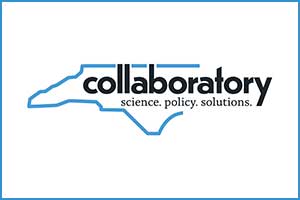
North Carolina has thousands of PhD scientists, medical doctors, and other professionals on the state payroll. These university employees are front-line researchers developing new technologies, cures, and ideas that make life in North Carolina better and more prosperous. What if there were a way for these professionals to use their knowledge and skills to inform policymaking and help our state make better decisions?
It turns out there is. In 2016, the North Carolina General Assembly established the North Carolina Policy Collaboratory to make the research expertise of the UNC university system available for practical use by state and local government. While initially envisioned as an institute focused on the environmental and economic impacts of policy proposals, during the COVID-19 pandemic, the legislature appropriated $29 million in CARES Act to enlarge the scope of the Collaboratory.
That money helped expand access to vaccines in rural areas by deploying freezers across the UNC System’s research universities, providing the necessary “cold chain” to support the vaccine supply in underserved rural portions of the State. Altogether sixty-three -80 Celsius freezers added enough storage capacity for almost 8 million doses of COVID vaccine. Freezers loaned out to campus-served adjacent communities, including the Lumbee Tribe and the Cumberland, Durham, Jackson, Halifax, and Robeson County Health Departments. SAS Analytics piggybacked on the project to generate data on vaccine availability and received EdScoop’s award for University Technology Innovation of the Year
But vaccine freezers were just one of more than 90 individual COVID-related projects funded across fifteen UNC System campuses ranging from next generation vaccines and therapeutics, community testing initiatives, wastewater monitoring, and local and regional economic impacts of the pandemic.
Additional funds appropriated for the Collaboratory supported the CORonavirus VAriant SEQuencing (CORVASEQ) sequencing surveillance network in partnership with 67 hospitals, six academic sequencing hubs (Duke, ECU, NCSU, UNCH, UNCC, Wake Forest), and the NC Department of Health and Human Services. Other projects focused on K-12 learning loss and recovery in partnership with the NC Department of Public Instruction as well as numerous projects to assist commercialization of technologies developed or advanced through prior research funding from the Collaboratory.
In total, North Carolina has invested over $74 million in two years through the Collaboratory to engage and deploy our State’s talented faculty, staff, and students to help the State address and recover from the pandemic, and to prepare for what comes next.
In keeping with its attention to natural resources and the environment, the Collaboratory has also been granted substantial legislative funding (almost $148 million since 2016) to investigate a class of more than 10,000 compounds referred to as Per- and Polyflouroalkyl Substances (PFAS) such as GenX. To date, more than $20 million has been made available for water and air analyses as well as important toxicological impact of these “forever chemicals.”
One exciting result of a Collaboratory research project has been the development of a novel filtration resin at UNC Chapel Hill by Drs. Orlando Coronell and Frank Leibfarth. Over the next year, production of this material will be scaled-up and deployed in three pilot projects to assess efficacy for both drinking and wastewater at municipal treatment facilities.
The State-funded research portfolio of the Collaboratory, which is now approaching a total of $148 million, includes more than 300 individual projects curated to address issues like flood resiliency ($2 million) and the opioid epidemic (>$5 million) among others. The Collaboratory has developed strong research projects across the UNC system, including artificial intelligence-driven drone technology at FSU, a new virtual training environment to better prepare nursing students for their certification exams at WSSU (in partnership with the NC School of the Arts’ Media and Emerging technologies Lab), and drone-based monitoring of coastal marsh habitats at ECSU.
The success of the Collaboratory is a credit to the leadership of Dr. Jeff Warren who is skilled at building strategic partnerships between the NC Legislature and academia. Warren, a marine geophysics expert and UNC PhD, spent seven legislative sessions as science advisor to NC Senate President Pro Tempore Phil Berger and understands the nuances of both academic research and Jones Street policymaking.
Though the model for the Collaboratory was initially met with skepticism, the success of the Collaboratory as a unique resource for North Carolina is evident. More than that, it is a testimony to the power of partnerships between the State, universities, the private sector and local governments to drive innovation.
It is a model that I expect other states will want to copy.
Dr. Chris Clemens is Provost of the University of North Carolina at Chapel Hill and and Jaraslov Folda Distinguished Professor of Physics and Astronomy
Any opinions expressed in this article are not to be taken as an official position of the University of North Carolina at Chapel Hill
